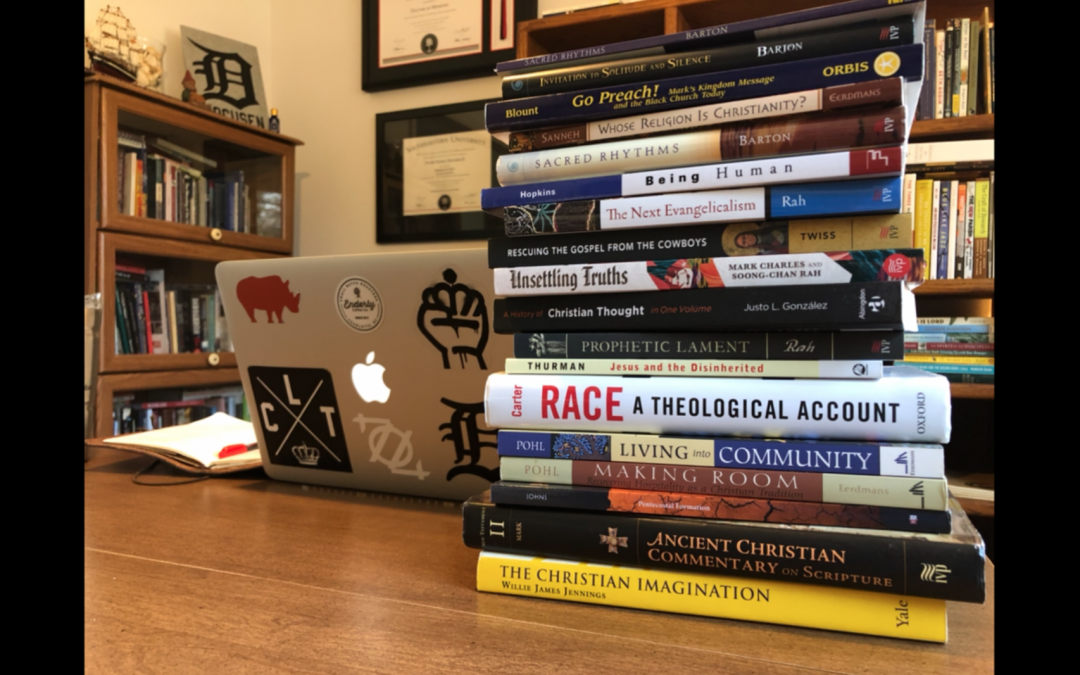Pastor –
Thanks for reaching out the other day regarding advice about your plans for Black History Month (February). Simply being willing to reach out and be intentional shows that you’re starting to see that it’s important to think outside the box that we were raised in and highlight times of the year that are significant to people of color in our country.
I’m certainly not an expert in navigating the complex dynamics that have divided our culture, but I deeply care and have some thoughts on how you can create an environment at your church to recognize the significance of this month and why it’s so important to folks in your church.
Remember… you teach on what is or has impacted you. Use that same instinct to share what has impacted you to share about topics of race. However, that means that you’re going to have to take the time to be impacted. Listen, learn, grow, and start sharing in the same way you do about everything else.
Here we go…
1. IT’S OK TO BE INTENTIONAL
You’re not the only white pastor that is nervous that you’ll come off as disingenuous if you mention something on a Sunday morning. The angst that you feel will start to go away as you incorporate more and more diversity into your teaching, positions of influence in your church, and regular references to people of color as people you admire, study, and are impacting your learning. For the time being, though, you’ve got to start somewhere, and it’s ok to be intentional this month.
Read up on why Black History Month is so significant in our country and share what you’re learning with your church. You probably got to the point that you did because you’re creative and found ways to communicate complex things in an interesting way. Don’t be nervous… just learn like you always do about other topics and let the ideas naturally flow.
It will feel more natural the more you know, the more you care, and the more you are genuinely impacted by a diverse theological and relational reality in your life. It’s ok to start somewhere, even if some people are skeptical. The alternative is to continue to be fearful and never mention significant non-white holidays.
Check out this link… did you know there’s specific months during the year that represent Black, Native American, Asian-American, Hispanic, etc? Your heart for diversity will shine through (and be way more believable) if you regularly acknowledge that there’s a rich history of diversity in our country and in the communities surrounding your church.
Remember, the spirit of neighborliness is not a black or white thing… it’s just opening up your heart to understand and find friendship with folks that are different from you. We all have so much to learn.
PRACTICAL TIP: Please don’t use the phrase, “God is color blind and so are we.”
The master plan of God included the brilliance and beauty of different skin tones and you don’t need to dismiss that in an effort to say that you love and embrace people of color. I know what you’re trying to say and I think you’re not saying what you mean to say when you say that phrase.
2. WHO ARE YOU READING / QUOTING IN YOUR SERMONS?
Take a look at your library. How many theologians, bible scholars, and influential voices in your life are people of color or women? As Willie Jennings would say (paraphrased), our imaginations are shaped by who we are reading and listening to as we develop our theological imagination.
This is one of the quickest and easiest ways to start shifting your heart, mind, spirit, and public expression of neighborliness as you lead your church: start quoting people of color and women as the experts on the topics you’re talking about.
Generally speaking, the quotes you’re using aren’t the points in your message. They support the points in your message. That means that you can use a wide variety of sources to make the same point. Most of the quotes I’ve seen from pastors come from old or dead white dudes. Why not dig a little deeper and find the brilliance that is available from a different perspective?
A quick look at my library includes theologians and Bible scholars like Soong Chan Rah,
Cheryl Bridges-Johns, Brian K. Blount, James Cone, Howard Thurman, J. Kameron Carter,
Christine Pohl, Justo Gonzalez, Amos Yong, Dwight Hopkins, Mark Charles,
Delores Williams, Richard Twiss, etc.
I’m not saying to ignore the brilliant voices of white guys that have deeply impacting work, I’m just saying that we’ve heard from them a bunch and that your teaching will be more well-rounded if you’re not homogenous in your thought and expression of our beautiful faith.
PRACTICAL TIP: Show pictures of every person you quote.
It helps the visual learners in the room (like me) to see a human being next to a quote. Additionally, you never have to use a modifier like “one of my favorite women theologians is…”
You don’t have to even acknowledge that they are a person of color or a woman, but people will begin to see it for themselves and will appreciate the diversity of thought that is impacting your pursuit and understanding of God.
Our christian imaginations have been shaped in churches by a deluge of white voices… dig deeper and give your congregation a better representation of the beauty of God.
3. WHO IS ON YOUR STAGE AND IN POSITIONS OF INFLUENCE?
What is the racial and gender makeup of your executive leadership team, board of directors, primary communicators on Sunday morning, and decision makers at your church? If it’s all white I would propose that you then take stock of the relationships that fill your life.
Who sits in your living room and laughs with you?
Who comes over for dinner and lingers for hours?
Who are you listening to when you ask for feedback about the church?
Who do you have coffee with and simply hang with and enjoy?
How many of these people are people of color?
Most pastors that I know hire brilliant people that are connected to their relational circle. It wouldn’t be too far of a reach to say that pastors are “hiring the best people they know.” However, if your relational circles look like you, your leadership teams and influencers in your church will likely look mostly like you, as well.
Simply put, the best way that you can figure out what to do for Black History month (or any of the other non-white holidays or months of recognition) is to ask your non-white friends what would be meaningful to them to honor their own culture.
PRACTICAL TIP: Ask someone not like you to grab coffee or a meal and genuinely ask them what it’s like to be a person of color at your church. Just listen, learn, and grow. Don’t say too much… just let your friend talk and hear from their perspective.
———————————–
Ever notice we don’t have a white history month?
This is probably because our history has been written by white people with white experiences and white imaginations. These months of recognition are important to acknowledge in our churches because it reminds us that our churches can and should reflect the beauty of diversity that is found in our communities.
I know it’s not easy to engage in conversations about race in the church. I know you’ve tried before and people got mad or offended. I have been there and can uniquely relate to feeling like your intentions were pure and you still get negative feedback. I also can imagine that you’re nervous. That’s normal, but it’s not a reason to shy away from these topics.
Keep pressing forward. It’s worth it to keep pressing forward. There are people of color in your church that will be deeply impacted by your willingness to stretch yourself and expand your circles of who is influencing you and friendships that impact your life.
Finally, most of the pictures that I see in the bible regarding the New Jerusalem and the heavenly city include beautiful imagery of a diverse community of worshipers from every nation and every tongue.
If that is the reality we will enjoy in heaven, why not intentionally work toward
experiencing that beautiful reality here on earth?
I’m proud of you. I’m here for you. And I’m grateful you cared enough to reach out this week. Hit me back if you have any more questions. I may not have the answers, but I’m always willing to talk and explore further.
Your friend,
David


